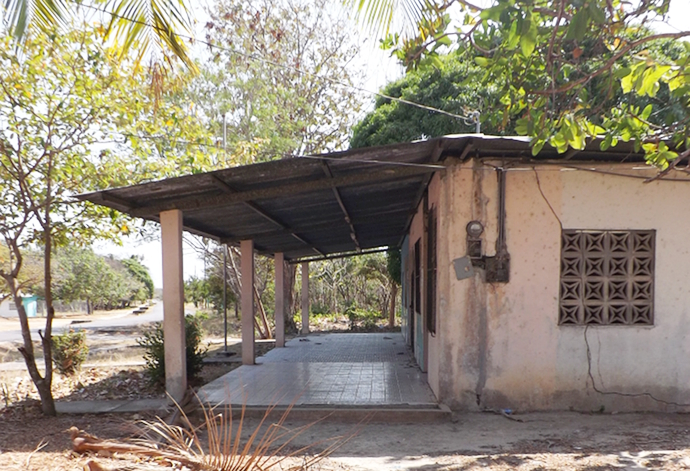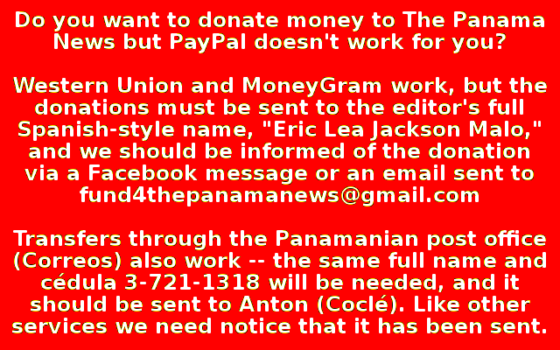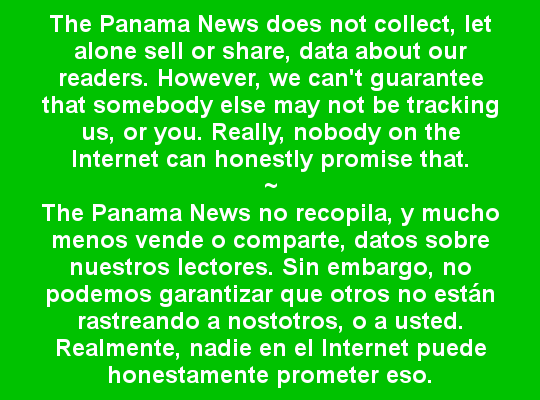The Panamanian flag doesn’t fly in front of the corregiduria anymore. Nor does a justice of the peace hold office hours there. Every Thursday the Agricultural Marketing Institute visits, but they allow thugs to decide which Panamanians get to buy there in which order. The water spigot does sometimes work. Local government doesn’t anymore.
Local government goes underground
by Eric Jackson
What’s a failed state? Among political scientists there is a classic definition, but mostly it’s a term with a very different meaning used inside the Washington Beltway. There it means any country that some neoconservative ideologue thinks that US forces ought to bomb or invade.
Originally, though, the concept has meant a place where government has largely broken down and ceded its powers — usually informally — to private parties. In such situations those attributes of government often are left to gangsters or local bullies who can prevail over their neighbors by force, threat of force or display of superior wealth. The examples often cited are Chicago in the days of Al Capone, when key city and county institutions were de facto under gangland control, or an analogous situation that helped Fidel Castro rise to power in Cuba against a Batista regime that devolved much control to mobsters led by Meyer Lansky.
There are many variations on the theme, many examples great and small, in many places around the world. Libya, Syria, Afghanistan — these are some of the better known situations. Mexico is trying to overcome such a situation, wherein drug gangs have asserted control over many places.
Take for example, the place where these words are written, the El Bajito neighborhood of the corregimiento of Juan Diaz de Anton, in Cocle province. It has been nearly a month since the water has come to this house. Next door, some recently arrived claimants to the entire neighborhood have water for construction of a house that they are building. At least four new lines off of the water main have been installed, such that people who live in houses that have been here more than 15 years — and about which ads were posted purporting to be for sale by some undisclosed person, unbeknownst to the residents — get no water.
These claimants? One of the town drunks whom they have hired came by to tell me that I don’t own my house and that my dogs are going to be killed.
The claimants have dammed a watercourse to alter the little local wetland — no green MiAmbiente sign to be seen authorizing this. The maintenance of the local dirt roads has been de facto ceded to them. The water committee says that it has a lazy employee and can’t do anything. The representante is nowhere to be seen.
Perhaps the best example in Juan Díaz? The Panamanian flag does not fly at the corregiduría or at the Junta Comunal. Along with the functions of government, its symbols have also been abandoned.
Ah, but the Electoral Tribunal has now authorized the distribution of gifts ahead of the May 5 elections. Perhaps the representante, or some candidate or party, will appear with things to distribute to those on their lists.
Do the heralds of Panama’s economic miracle grudgingly admit that growth has slowed but predict a banner year to come? Do we hear of the great success of the 1989 US invasion of Panama and subsequent miracle of democracy — from those who would bombard Caracas like they bombarded El Chorrillo?
But from those who were trying to stay in business around Via Argentina in the city to the residents of hardscrabble neighborhoods in the Interior we have a failed state on many parts of this isthmus.
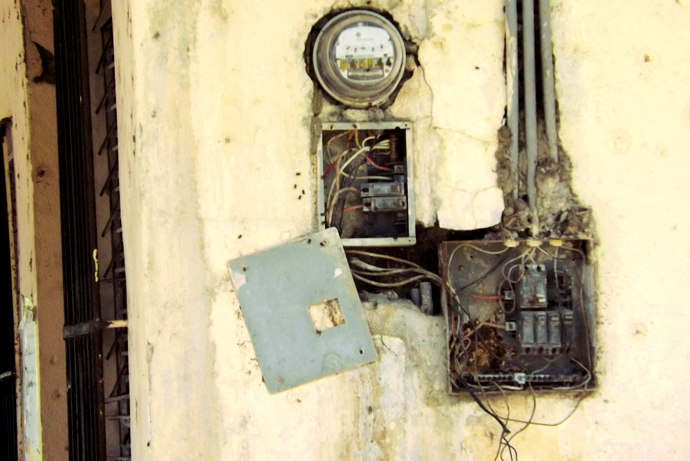
Power to — who?
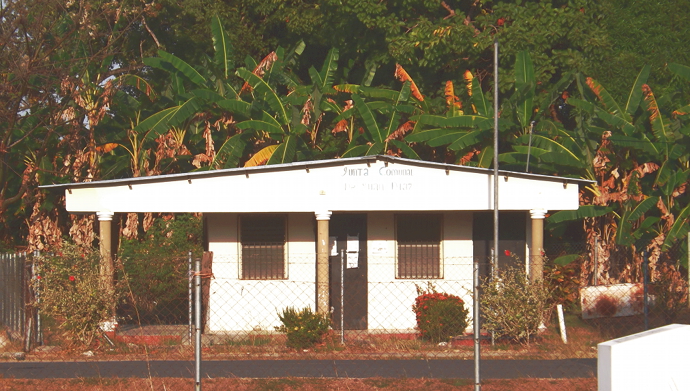
The flag doesn’t fly at the junta comunal, either.

